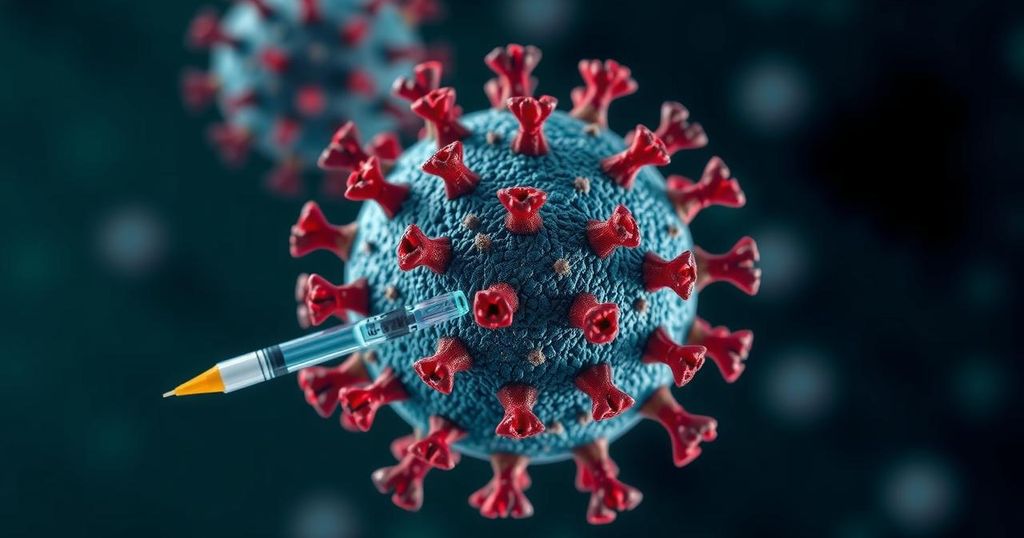Global South’s Initiative for Vaccine Self-Sufficiency Following Pandemic Inequities

In response to global vaccine inequity during the COVID-19 pandemic, researchers from the global south partnered with the WHO to create the mRNA Vaccine Technology Transfer Hub. This initiative aims to enable low- and middle-income countries to develop mRNA vaccines, ensuring better preparedness for current and future health emergencies. Despite dwindling demand for COVID-19 vaccines, the collaborative project remains committed to enhancing regional vaccine production capabilities, addressing longstanding disparities in health care access.
As the COVID-19 pandemic unfolded, a notable disparity emerged in vaccine availability between wealthy and low-income nations. Recognizing the urgent need for self-sufficiency in vaccine production, researchers from Africa, Asia, and South America collaboratively established an initiative in partnership with the World Health Organization (WHO). This coalition aims to enhance the capacity of middle-income countries in the global south to produce messenger RNA (mRNA) vaccines, not only against the coronavirus but also for various other diseases that pose health risks to their populations. Despite the current diminishment of the market for coronavirus vaccines, the mRNA Vaccine Technology Transfer Hub continues to advance its mission. The initiative diverges from traditional competitive drug development by emphasizing cooperation and knowledge sharing across its members. On May 23, during a side event at the World Health Assembly in Geneva, WHO officials reaffirmed their commitment to sustaining the project amid dwindling funding. The devastating consequences of vaccine inequity during the pandemic, which allegedly resulted in over a million deaths in the global south, remain a poignant reminder of the vulnerabilities faced by these regions. To prevent a repeat of such inequities, major pharmaceutical companies are now establishing operations in African nations, pledging to allocate doses for these countries during future health crises. Conversely, the smaller, locally owned entities participating in the initiative are focused on serving their respective communities first. The pandemic exposed fundamental flaws in global health systems, underscoring that national interests often supersede altruistic objectives. As noted by Sotiris Missailidis of Bio-Manguinhos/Fiocruz in Brazil, dependence on external resources is insufficient during global crises. Currently, laboratories in several countries, including Argentina, Bangladesh, Brazil, India, Indonesia, South Africa, and Vietnam, are developing mRNA vaccines in response to both COVID-19 and other public health threats, showcasing a newfound commitment to self-reliance. The initiative’s longevity depends on solidifying infrastructure for mRNA development, reinforcing regulatory standards, and fostering economic growth in these regions. The use of mRNA technology is pivotal for efficient vaccine production, presenting an opportunity for smaller laboratories to perform essential vaccine candidate testing. As the initiative progresses, the potential for new vaccines targeting diseases such as tuberculosis is being explored. Although the demands of the market for COVID-19 vaccines have shifted, the foundational work undertaken by these hubs is anticipated to yield significant advancements in vaccine access, ultimately aiming to rectify the longstanding imbalances in global health care.
The COVID-19 pandemic revealed stark inequalities in vaccine accessibility between wealthy nations and their poorer counterparts. In response, professionals from the global south, recognizing the need for sustained health equity, teamed up with the WHO to create the mRNA Vaccine Technology Transfer Hub. Their goal is to empower these regions to develop and produce mRNA vaccines independently, not only for coronavirus but also for other infectious diseases that have historically plagued their populations. This initiative builds on the lessons learned from the pandemic, aiming to rectify inequities in global health access.
The establishment of the mRNA Vaccine Technology Transfer Hub is a significant step toward empowering low- and middle-income countries to produce their own vaccines, addressing the crucial issues of health equity exposed by the pandemic. Through collaborative efforts and innovations in mRNA technology, these regions seek to ensure that they are not left vulnerable during future health crises. Continued investment and political will are essential to maintain and expand this vital initiative for global health stability.
Original Source: www.washingtonpost.com








